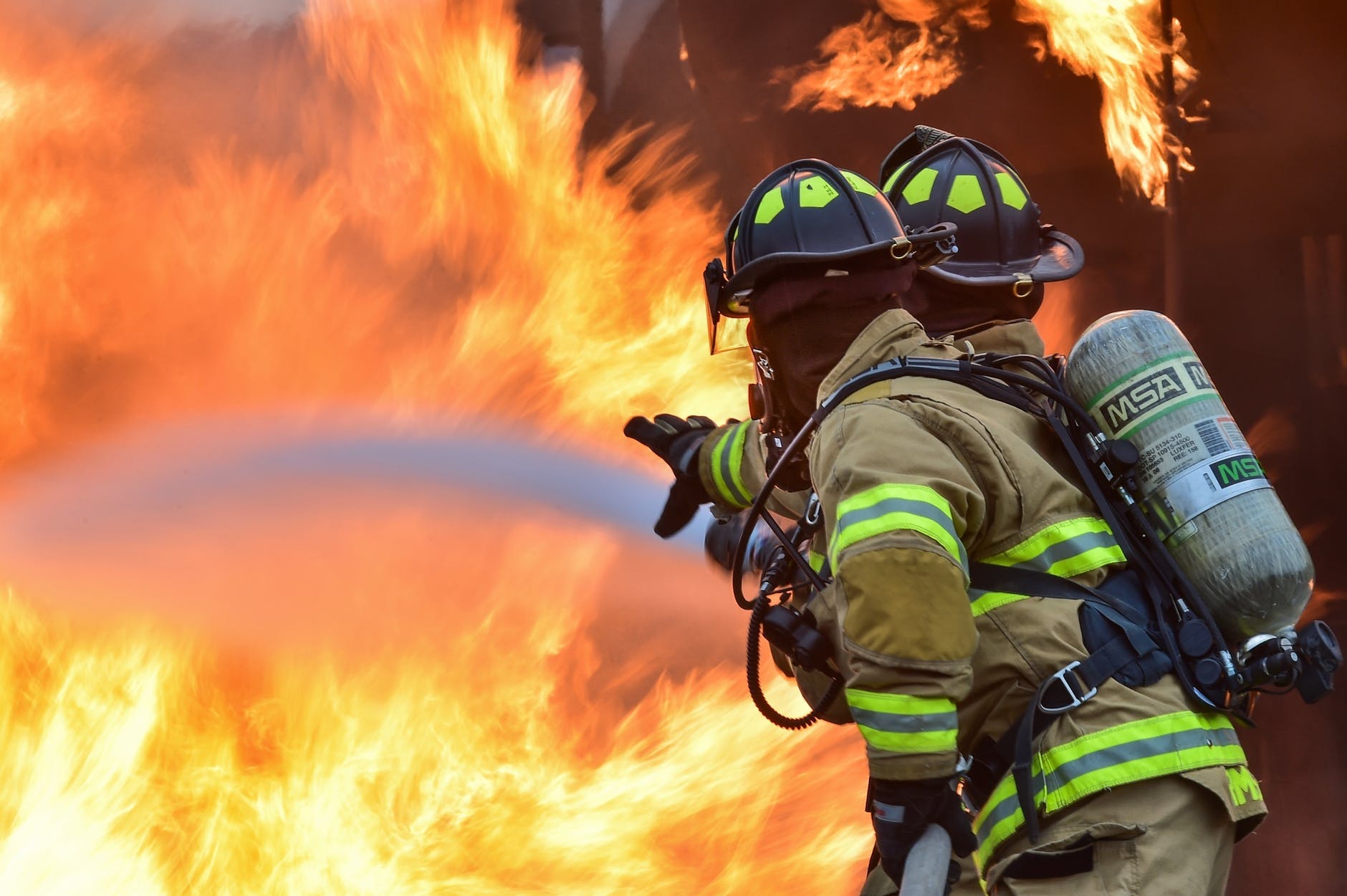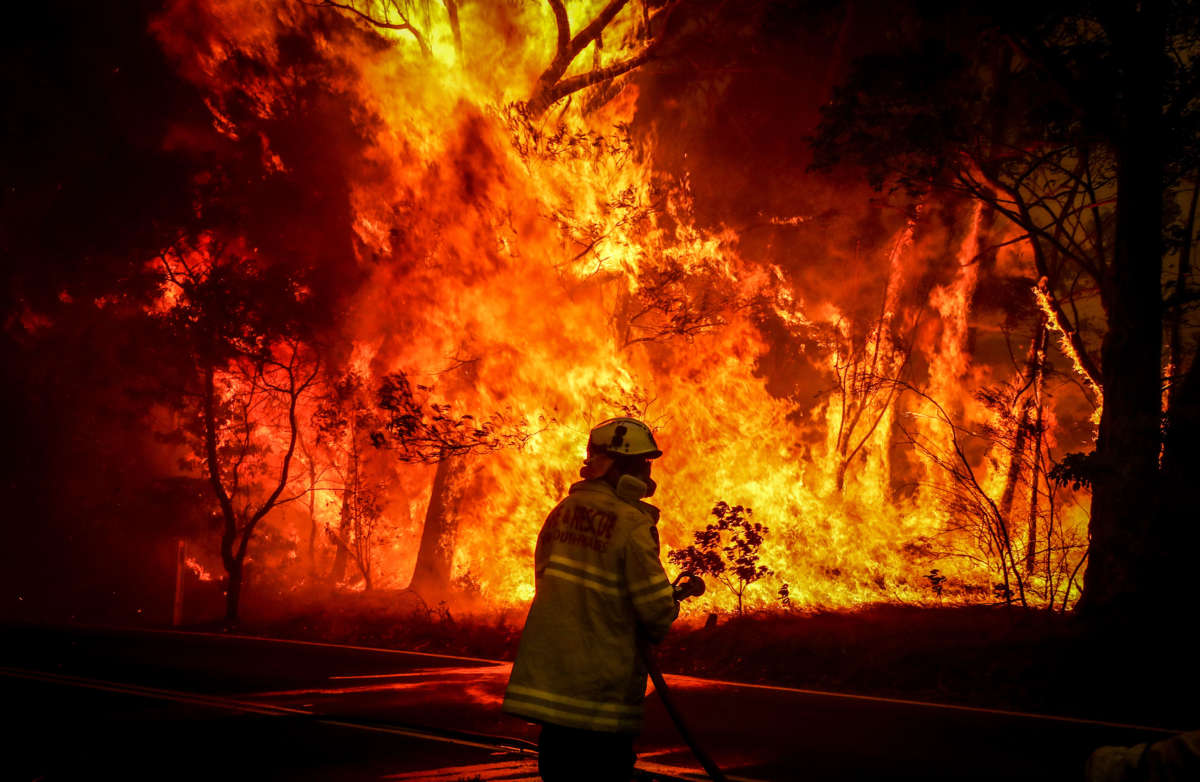Are you awake to see opportunities?
Why is it that some people have the knack to see an opportunity and seize it, and others just watch them pass by?
When things look pretty bad, everything is burning up around you and you are looking at the smoldering ashes of something that once was valued and pristine, chin up. It isn’t that bad. And maybe it is needed - in a good way...

In 1982, I was running my own small business in Adelaide, Australia. We wrote custom computer software for local businesses, corporations & government departments on the original IBM PC platform. My speciality was database programming, so I got to spend a lot of time with large enterprises building smaller database applications and workgroup computing solutions for them. It was a really great time, and I was only about 21 years old.
We put an advertisment in the local Yellow Pages - the big phone book at the time. It cost a lot of money to get an ad in there, but that ad generated a lot of phone calls. You’d never know who was calling - it could be a small business one day, or a big corporation the next.
One day I got a phone call from a small, rural township in outback Australia. A town called Hawker, that was about a 5 hour drive from Adelaide, on the edge of the Flinders Ranges. There wasn’t much out there, other than some cattle stations. It was pretty arid climate, and it wasn’t on the road to anywhere. Total population 300 people.
Yeh, that small. 300 people small. Think Greenacres. The guy who called us was the town Mayor. He was also the head of the utility company for the region, as well as the fire chief and the local head of the police force. Basically it was him and a couple of other guys. Maybe some volunteers that made up the rest of the public services to the town. Other than the cattle stations out there, there were two pubs, a general store and a gas station. That’s Hawker.

They called us because they wanted some computer software developed. They made a deal with a town about 2 hours drive away from them, to run a massive power line out to the township, and they then built their own power distribution station and ran power to all the houses in the township. But they had no way to bill the usage of the power. They could read the meters, but it was all hand written on paper and each month it was an enormous job to send out statements to each utility consumer. And it wasn’t that you could just buy power billing software off the shelf, at least you couldn’t back then.
So I told them we could write it. I really didn’t know what I was getting myself into, but next thing I’m in my car driving up into the outback to visit the town Mayor and pitch what we could do. Little did I know that no one else wanted to deal with them because of the distance from the city, but I wanted to try and help and it was another government client that we never turned away because they at least paid their bills on time.
Well after we were awarded the contract, I started to write it. One thing that we did that was really successful was to spend a lot of time on site with the client so that we could adjust the software if we discovered that what we thought their “use case” was for it was flawed. I was pretty good about coding on site if I needed to, and I just asked them if they could accommodate me while we got the system online. They were more than happy to do that, so I stayed up there for weeks at a time implementing this system, which was successfully completed.
During the time that was up there, I’d be working in the town council offices. I think it was a renovated church - at least it had that feeling of a 1900s building, all made of stone and high ceilings, etc. I parked myself out in a back unused office and spent all day coding and getting the system online.
One day I hear the sound of panic at the front of the building and discovered that the town mayor was rallying the Fire department. This meant getting his full-time employed people together and the volunteers that made up the fire department. A massive bushfire had emerged about 15 miles from the town. And I’m talking BIG. Like the ones with the 50 meter high flames, etc.
I started to freak out. But what really amazed me was how calm and stress-free the town mayor was. So while he was waiting for the volunteers to all come to the town council building, I asked him, “Are we safe here? Won’t this fire destroy everything and us with it?”

He looked at me and said, “No. This is all a normal part of nature and we’ve been through this many times before.”. OK, I thought. But I’m still freaking out. I think he must have noticed that in my face or something, so he takes me aside and tells me something that I’ll never forget.
He said this. “Nature has a way to self-clean. The old deadwood trees that provide nothing to the ecology need to be culled, and nature has a way to do it. It uses bushfires to destroy the old, deadwood. About a year after the fire has gone through and scorched everything, the new growth will finally get a chance to emerge.”. He said, “You see, new growth can’t exist if the old, dead growth is consuming all the nutrients. Nature has to cull it and this is how it does it.”.
Australia just went through one of the worst bushfire seasons it has ever had. The amount of devastation that was caused was unheard of. Everyone I know that realized I was Australian wanted to make conversation about this as they were seeing it as a headline on the evening news in the USA.
All through this, I remembered what the town mayor told me about 40 years prior. Bushfires are necessary to clear out the dead wood so that new growth can emerge.
Today we have a bushfire at our door. It is the Coronavirus.
As I write this, we are going through the panic phase. Just as I was panicked in the town council building 40 years prior. But I needed to hear the wisdom of someone who had been there before. I needed to hear that it will pass and it is necessary.
I don’t want to see anyone die or go through the turmoil of a global pandemic. But it will pass. A month or so from now, we’ll accept it and go through those five stages of grief:
Once we get to acceptance, it will quickly pass by us.
But the economy will be severely impacted. As I write this, the DJIA dropped 3,000 points today. That is an all time high in terms of dropping of value in one day - never seen before in history. Tomorrow it will probably drop again. And the day after that. Eventually there will be a floor, but we don’t know when or what that will be.

With the economic bushfire, a lot of “zombie corporations” that were able to exist because of a bull market, will be destroyed. I hate to see Govt. bailouts because I believe the free market should be allowed to naturally do what it needs to, in order to spur new innovation forward, but I don’t expect the economy will go through this process without some attempts by the US Federal Reserve to prop it up or bail outs from the government to come. However they can’t support everything and we have a lot of deadwood in the Fortune 1000 that needs to be culled. If we just live in a world where big corporations can gobble up any new players that come along, so that new innovation is stopped or stalled because it threatens the existing position of the big corporations, then no one wins.
We need bushfires in order to kill off the deadwood. However unfortunately people will get burned. They will lose jobs, their hopes & dreams of retirement may be slowed, they may be forced to make bad decisions regarding debt and borrowing, rather than rallying to the call to conserve cash or sell off their own “deadwood” in the garage to generate some income.
It is at these times that we are tested. But the tests are really whether you see a big picture rather than worrying about the immediate situation. Using the analogy of Forests & Trees - where you can’t see the Forest because all you are doing is dealing with trees. And in some cases, just the bark on those trees. And yes, those trees are burning.
Given the challenges of this time, what are you going to do? Did you prepare for a day like this? Did you keep your emergency savings fund well stocked, as well as your pantry and your resources? Or did you just do what the roadside billboard signs told you to do, and got that credit card, ran it up to the limit with things that in retrospect you don’t need? Will you be consumed by the fire, or do you have the wisdom of the town mayor to know that the fire has a purpose and needs to complete its mission. If you realize that, then you get out of its way and you hunker down until it passes.
That’s my message in this article. Don’t feel anxious because you don’t have control. You never had control of the elements of nature at this level in the first place. Your concrete jungles of cities, plastic trees and virtual reality can exist after the current bushfire has passed, but you need to respect nature because it has a mission that is necessary and we all actually benefit if we just let it complete its mission. The new growth opportunities that will emerge after the bushfire has passed through will be enormous and those with clarity of mind will emerge as the next new leaders in the economy. I hope that is you. Or if your ambitions are less epic, may you find security and peace following the bushfire.
Just roll with it, and get through it. Like all things, it will pass and a new day will dawn.